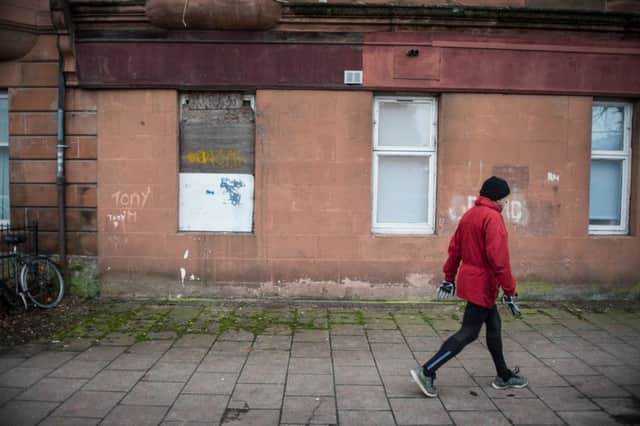Lifting benefit cap '˜could help 15,000 Scots out of poverty'


Researchers at IPPR Scotland said the move would cost £120 million a year and could help ministers fulfil “Scotland’s strong targets on reducing poverty”.
It argued funding to councils could be increased, allowing them to compensate those families affected by the UK Government’s decision to limit child tax credits to two children.
Advertisement
Hide AdAdvertisement
Hide AdA clause in the rules means mothers who have a third child as a result of rape can be exempted but would have to provide evidence in order to do so.
While mitigating the policy would cost £120 million a year, IPPR Scotland said it would lift 10,000 children and 5,000 adults out of poverty.
Speaking ahead of Holyrood’s first vote on the draft Budget for 2018-19, IPPR Scotland director Russell Gunson said: “Now is the time for parties across the parliament to prioritise making this year’s budget an anti-poverty budget, beginning the hard work of meeting Scotland’s strong targets on reducing poverty.”
In its budget for the coming year, the Scottish Government set out plans to increase income tax on higher earners - with Finance Secretary Derek Mackay proposing to increase the two highest rates of the levy by 1p.
While the basic rate of income tax will be frozen at 20p, ministers plan to establish a new intermediate rate of 21p, which would apply to earnings between £24,000 and £44,273.
But the proposals also include a “starter rate” of income tax which would be set at 19p and would be paid on the first £2,000 of taxable earnings.
IPPR Scotland however said its analysis showed this lower rate would have no effect on reducing poverty.
Mr Gunson said: “The Scottish Government’s wider plans to increase income tax are necessary and welcome and will help to protect a range of public services from cuts for at least this year. However, the proposed tax cuts on lower earnings are poorly targeted and will have no impact on poverty rates.”
Advertisement
Hide AdAdvertisement
Hide Ad“If further funding is found between now and the end of the budget process, we should look to what can be done to improve social security in Scotland.
“Effectively ending the Rape Clause and the Benefit Cap in Scotland could be possible using local authority powers and budgets, bringing 15,000 people out of poverty at a cost of £120 million a year.
“These proposals could protect local authority budgets from proposed cuts, reverse some of the injustices of the UK benefits system, bring 15,000 people out of poverty in Scotland and, in doing so, reduce pressure on local services.”
A Scottish Government spokesman said: “The impact of changes to benefits and tax credits is a considerable burden on those least able to afford it and continues to push more people into poverty. The UK Government must rethink this damaging policy.
“Our new Child Poverty Act sets ambitious targets to eradicate child poverty by 2030. We are already expanding free childcare, investing in free school meals, and spending around £100 million a year mitigating the worst of UK Government welfare cuts; and we will soon publish a Child Poverty Delivery Plan backed by a new Tackling Child Poverty Fund.
“Our income tax proposal is balanced: it makes the system fairer, more progressive and raises additional revenue to support our economy and public service.
“Our Draft Budget policy, when combined with the Personal Allowance, will protect the 70% of taxpayers who earn less than £33,000 a year and ensure they pay less tax next year for any given income.”